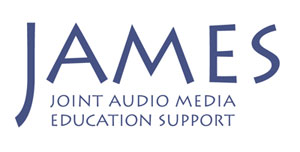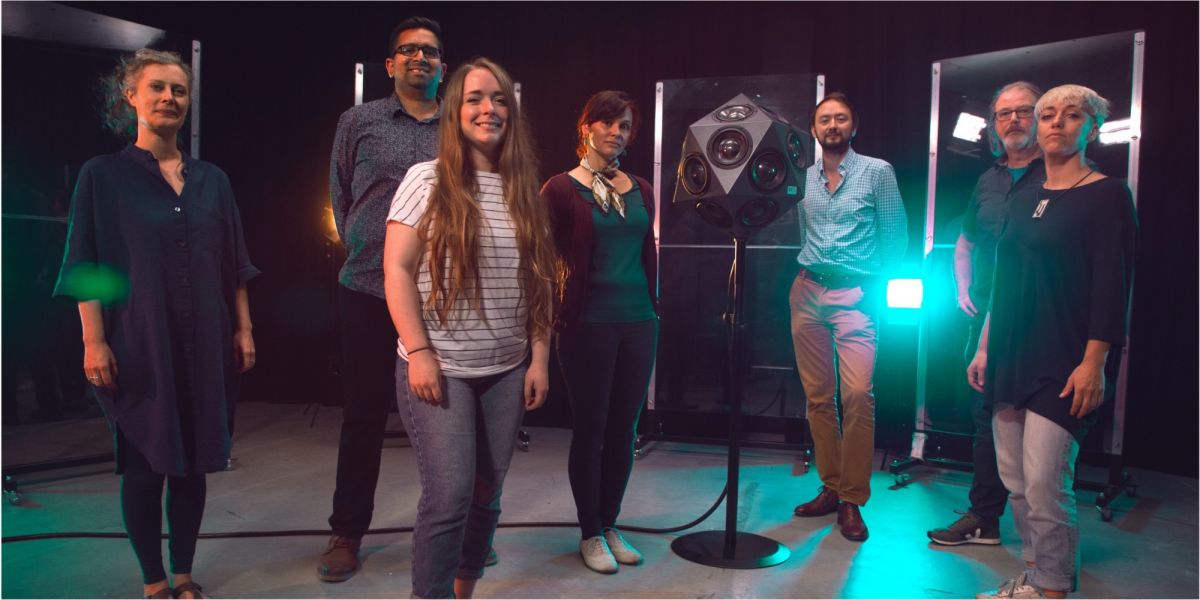Music and Sound Design, MA
Take your passion for sonic creativity to the next level with our Master’s course in Music and Sound Design.
The course will encourage you to be forward-thinking and innovative and will prepare you to respond both technically and creatively to diverse professional industry environments, or for further academic study.
Taught by world-leading experts from Greenwich’s SOUND/IMAGE Research Centre, you’ll have access to great facilities including our three Sound Studios, Spatial Audio Lab, Loudspeaker Orchestra and an array of microphones and location sound recording equipment.
Graduates from the School’s existing courses have gone on to work in a range of different jobs in music and sound including - sound editing; sound design; composition for film, television, games, media and theatre; spatial audio; music production; VR and interactive media; and experimental sound practices.
School
Location
Duration
- 1 years full-time
- 2 years part-time
Start month
September
Home/international fees 2024/25
£11,000 /£17,450
What you should know about this course
What you will study
About the course team
Our team of academics and composers explores the potential in sound and audio-visual media, bringing together musicians and sound designers, film makers, artists and philosophers to critically reflect upon and develop world leading research in this diverse and interdisciplinary area. In addition, there will be regular external contributions to learning and teaching through guest lectures.
Come and meet us
We are offering virtual events so that you can still experience how Greenwich could be the right university for you.
Next Open Days
Got a question?
To find out more about our Open Days and Campus Tours or if you need any assistance, please email opendays@gre.ac.uk.
Entry requirements
An undergraduate (honours) degree at 2:2, or above, in a relevant subject.
Applicants with a degree in another discipline, may be considered if they can present evidence of substantial work within music an/or sound design.
Applicants without a degree that have professional experience or relevant professional experience may be considered.
For more information, use our contact form or call us on 020 8331 9000.
You can also read our admissions policy.
Further information about entry
Suitable applicants will be required to submit a portfolio and attend an interview.
Available to overseas students?
Yes
Can I use Prior Learning?
Find out more on our Recognition of Prior Learning pages.
How you will learn
Teaching
Class sizes
This course will run for the first time from September 2023 so we are unable to give an indication of class sizes.
Independent learning
Students are required to undertake independent learning throughout their time on course. Tasks will include regular set reading and research activities, as well as independent work on practical tasks, such as composition, sound design and spatial audio techniques.
Students will apply skills and knowledge gained in the delivery of their own independent work.
Personal tutors will support students to set out their own development plans in response to student career aspirations and identify specific support where necessary.
Overall workload
Students will undertake four 30-credit credit modules and one 60-credit module. Each module consists of 300 hours of work, divided between contact hours and independent study.
Assessment
The range of assessment strategies will challenge students to develop appropriate skills. The structure and details of each course has been devised to respond to the needs of industry. Students will be assessed through a diverse range of coursework and project assignments, including written work, presentations, creative portfolios and compositions.
Feedback summary
We aim to give feedback on assignments within 15 working days.
Dates and timetables
The academic year runs from September to June.
Full teaching timetables are not usually available until term has started. For any queries, please call 020 8331 9000.
Fees and funding
Your time at university should be enjoyable, rewarding, and free of unnecessary stress. Planning your finances before you come to university can help to reduce financial concerns. We can offer advice on living costs and budgeting, as well as on awards, allowances and loans.
| Full time | Part time | Distance learning | |
|---|---|---|---|
| Home | £11,000 | £1,850 per 30 credits | N/A |
| International | £17,450 | £2,908 per 30 credits | N/A |
Accommodation costs
Whether you choose to live in halls of residence or rent privately, we can help you find what you're looking for. University accommodation is available from £126.35 per person per week (bills included), depending on your location and preferences. If you require more space or facilities, these options are available at a slightly higher cost.
Funding your study
There is a range of financial support options available to support your studies, including the Aspire@Greenwich award for study resources that many full-time students will receive.
EU students may be eligible for a bursary to support their study. View our EU bursary to find out more.
Discover more about grants, student loans, bursaries and scholarships. We also provide advice and support on budgeting, money management and financial hardship.
Trips: If there any site visits or field trips, students may need to pay their own travel costs.
Careers and placements
What sort of careers do graduates pursue?
The breadth of the curriculum is such that graduates will be equipped to seek employment in areas as diverse as theatre sound, music production, games, immersive experiences, live sound and acoustic engineering, or further academic study for MPhil and/or PhD.
Graduates from the School’s existing courses have gone on to work in a range of different jobs in music and sound including - sound editing, sound design, film composition for film, television, games, media and theatre; spatial audio, music production, VR and interactive media, and experimental sound practices.
Do you provide employability services?
We have an Employability Officer for postgraduate students to consult about specific opportunities relevant to the course. They work closely with professionals in industry to ensure you are well-prepared for the workplace and have already begun to build your professional network by the time you graduate.
The central Employability and Careers Service also provides support for students preparing to apply for placements and graduate roles, such as CV clinics, mock interviews and employability skills workshops.
Support and advice
Academic skills and study support
We want you to make the most of your time with us. You can access study skills support through your tutor, our subject librarians, and our online academic skills centre.
Where appropriate, we provide support in academic English and mathematics. If you need to use particular IT packages for a specific module, we provide training for this.
Support from the department
As a postgraduate student in the School, you will be a member of a wider creative community.
Each year we run a graduate show where our degree students can showcase their best work.
Not quite what you were looking for?
We've got plenty of other courses for you to choose from. Browse our postgraduate courses or check our related courses below.....
Film, media and sound at the University of Greenwich
Develop your skills and knowledge, shape your creative future, in great facilities appropriate to your course - purpose-built film, TV and sound studios, edit suites, and more!
Visit our film, media and sound degrees page.
Film, media and sound degrees
Mode of study
Select from the dropdown below.
| Course level | |
| UCAS code | |
| Duration | |
| Location |









